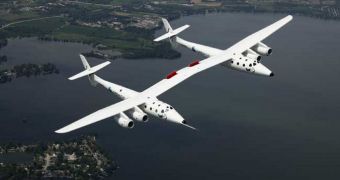Officials at the Loudoun County, Virginia-based Orbital Sciences Corporation (OSC) and New Mexico-based Virgin Galactic announced recently that they signed a cooperation agreement for constructing a new spacecraft, to be proposed for NASA funding.
The two companies plan to build a lifting-body spacecraft capable of securing them the first spot in the second round of NASA commercial crew taxi development contracts competition, which is scheduled to begin in March 2011.
Leaders at NASA and in Washington are currently moving towards delegating the transport of astronauts and cargo to low-Earth orbit (LEO) to private companies, and collaborations such as this one are precisely what the agency encourages.
The OSC/Virgin joint effort will focus on developing a spacecraft capable of flying to orbit by 2015, carrying at least four passengers. If they manage to do that, they could receive additional NASA contracts to service the $100 billion International Space Station (ISS).
The orbital facility will fly until at least 2020, and so there are a lot of money to be made for entrepreneurs in this field. If all else fails, there is always the option of having the spacecraft converted to tourist attraction, providing rides to space for paying customers.
But, for now, the corporations are focusing on the NASA Commercial Crew Development 2 (CCDev 2) project. Their overall design was already decided – a capsule that will be launched aboard an Atlas 5 delivery system, Space reports.
It still remains to be seen how the group will manage to design, develop, construct, test, and then launch this vehicle in just three years. This is a very short time frame for such projects.
According to official announcements made by the American space agency this year, more than $200 million will be awarded to the private sector next year, for the refinement of spacecraft concepts.
Both launchers and spacecraft are eligible to receive funding, as innovations are drastically required for both these areas. Companies willing to participate in CCDev 2 had to submit their proposals by Monday, December 13.
However, recent turmoil in Congress has made funding for the initiative uncertain. The CCDev 2 will only receive the money it needs only if a continuing appropriations bill is passed through Congress.

 14 DAY TRIAL //
14 DAY TRIAL //